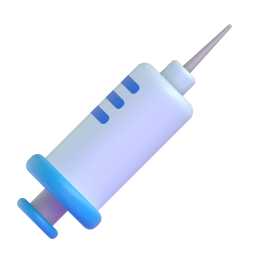Symptoms of Dengue
Symptoms of dengue fever usually appear 4-10 days after being bitten by an infected mosquito and may include:
-
 Fever39-40°C, often accompanied by chills and feverishness.
Fever39-40°C, often accompanied by chills and feverishness. -
 PainSevere muscle and joint pain, along with pain behind the eyes.
PainSevere muscle and joint pain, along with pain behind the eyes. -
 Nausea and vomitingFrequency depends on the severity of the infection.
Nausea and vomitingFrequency depends on the severity of the infection. -
 Skin rashSometimes appears as red spots or small dots on the skin.
Skin rashSometimes appears as red spots or small dots on the skin.
In severe cases, dengue can lead to complications known as the hemorrhagic form, which requires immediate medical attention.
Treatment of Dengue Fever
If you experience symptoms, it is essential to see a doctor as soon as possible for an accurate diagnosis. HealthBali offers specialist consultations, hospitalization options, and supportive therapy if needed. Treatment generally focuses on symptom relief, hydration maintenance, and patient monitoring.
Dengue Prevention
To reduce the risk of dengue infection in Bali, it’s important to follow these simple precautionary measures:
-
 Body protectionUse insect repellent and wear long-sleeved clothing, especially during the evening and early morning hours when mosquitoes are most active.
Body protectionUse insect repellent and wear long-sleeved clothing, especially during the evening and early morning hours when mosquitoes are most active. -
 Home protectionInstall mosquito nets or screens on windows and doors, and use mosquito bed nets for added protection while sleeping.
Home protectionInstall mosquito nets or screens on windows and doors, and use mosquito bed nets for added protection while sleeping. -
 Avoid stagnant waterAvoid areas with stagnant water where mosquitoes breed, and check your surroundings for any open sources of water.
Avoid stagnant waterAvoid areas with stagnant water where mosquitoes breed, and check your surroundings for any open sources of water. -
 VaccinationQDENGA is the latest dengue vaccine. It is the first vaccine suitable for individuals who have not previously contracted dengue.
VaccinationQDENGA is the latest dengue vaccine. It is the first vaccine suitable for individuals who have not previously contracted dengue.
Vaksin - QDENGA (1x suntik)
1790000
Rp
First vaccine approved in Indonesia for use regardless of prior exposure to dengue fever.
- Suitable for dengue prevention in individuals aged 6 to 45 years.
- Administered in two injections (second dose after 3 months).
- Contraindications: hypersensitivity to active substances; individuals with congenital or acquired immunodeficiency; pregnant and breastfeeding women.
Support and Assistance
HealthBali collaborates with leading clinics in Bali to help you receive timely medical care. We handle negotiations with clinics on your behalf, making it simpler and faster to secure confirmations in most cases. With us, you don’t need to send inquiries to various medical facilities or wait a long time for overpriced offers.
High-quality equipment
Accurate diagnostics
Convenience and comfort
Wide range of services with exceptional care
How to Place an Order?
Step 1
Select services on the website or contact the manager via WhatsApp
Step 2
We will coordinate the services with the medical facility and send you a confirmation
Step 3
Undergo examination or treatment at the clinic or at home
Useful Information
- Dengue and the Common ColdMild dengue can often be indistinguishable from the common cold, and some people who have had dengue fever may not even realize they encountered this illness. However, this does not mean that dengue — like the common cold — is without risks.
Symptoms of dengue fever appear suddenly and may include high fever, sweating, nausea, dizziness, headache, muscle and joint pain, and general weakness. Some individuals may develop a fine rash, initially on the backs of the hands and feet, then spreading to the torso.
Most individuals recover a few days after the onset of symptoms. However, in severe cases, a sudden drop in blood pressure may occur, requiring urgent medical attention. - What to do in case of Dengue FeverDengue fever is one of those illnesses where early diagnosis and seeking medical care are crucial.
What else is important:- Stay Hydrated: Increase your fluid intake to prevent dehydration. Drink plenty of water, low-fat broths, electrolytes, and other fluids.
- Pain and Fever Management: To relieve pain and reduce fever, you may take pain relievers, but always follow the instructions and recommendations of your doctor or pharmacist. Do not take aspirin, ibuprofen, diclofenac, or similar medications, as they can increase the risk of bleeding in dengue cases.
- Rest and Recovery: Rest during the illness to give your body the chance to recover. Follow your doctor’s advice and stick to a calm routine.
- Monitor Your Symptoms: Keep track of your condition and seek medical attention if new or worsening symptoms appear. Remember, only a healthcare professional can properly assess your condition and recommend further action.

